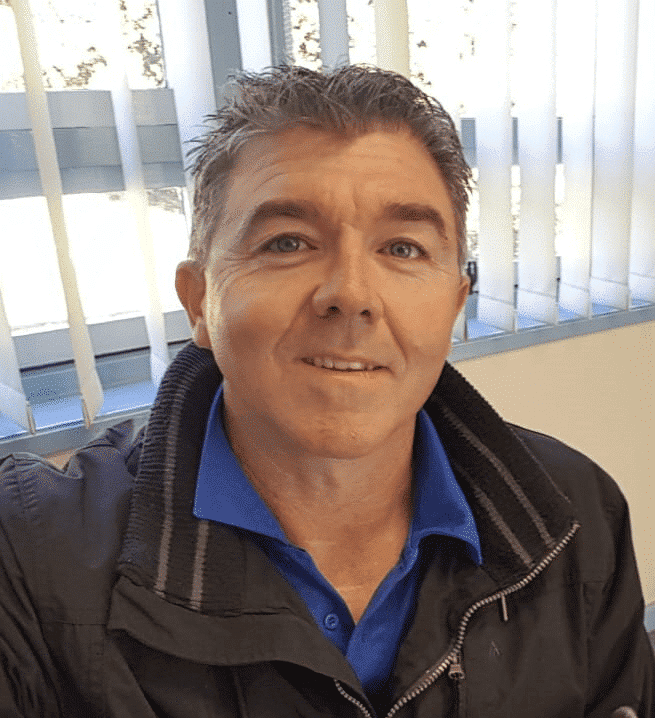Yates Avenue Public School is a small P-6 school of 176 students, located in Western Sydney. Four years ago, the school embarked on a program of improvement based on evidence-based practice.
In a recent Think Forward Educators event, the school’s presentation team, David MacSporran, Shani Gale, Jacinta Richards, Liz Salvagio and Kimberly Walter, shared their experience of successfully implementing the Science of Reading, first introducing the MiniLit program for intervention and then gradually expanding to whole-class synthetic phonics with InitiaLit.
Highlights from the session offer valuable tips for other schools hoping to make this major shift in practice.

The challenge
Like many schools, Yates Avenue Public’s first experience with evidence-based literacy practice was through reading intervention. After reviewing performance assessment data, the team could see they had issues across several key learning areas and particularly with reading. Through the early diagnostics process, Principal David MacSporran reviewed the research literature and decided that synthetic phonics was the place to start. To inform his approach, he made several visits to other schools: “I visited schools with strong NAPLAN growth data – schools that were punching above their weight – in low socio-economic areas. I had the understanding that low reading scores would lead to low numeracy scores when students can’t read the questions.”
In 2017, the school introduced MiniLit, MultiLit’s Tier 2 small group literacy intervention program. After 12 months with MiniLit, students were making very good progress, but there remained the problem of too much demand: “We had around 60 per cent of our Year 1 students needing that Tier 2 intervention,” he said.
In a Response to Intervention framework, an exemplary instructional approach delivered to the whole class should be effective for 80 per cent of students, with only 20 per cent requiring more intensive support. “Because we were pushing 60 per cent and upwards, that told us that our universal practices were inconsistent and needed to improve,” explained MacSporran.
Making the change gradually
This led the school’s leadership team to begin introducing whole-class synthetic phonics instruction with InitiaLit. When Yates Avenue started to change their model of instruction, they began one grade at a time, rolling out InitiaLit in Kindergarten in 2018, then expanding to Year 1 in 2019 and Year 2 in 2020.
As part of this process, the school needed to quickly upskill staff in the content knowledge around a systematic synthetic phonics approach. InitiaLit’s scripted approach took some of the cognitive load away from the teachers. “We made sure we provided professional learning in understanding ‘the why’, but this also took a bit of the demand from teachers in terms of the how,” said Assistant Principal Shani Gale.
Acknowledging that change management can be difficult in schools, MacSporran advised that one of the keys to their success was to “carve off just a little bit at a time with a slow, supported model. We tried to keep demands as low as possible.” It was an approach that paid off. Gradually, the results turned in their favour.
Visiting high performance schools for different perspectives
As the changes were introduced, teachers made visits to high-performance schools to observe other classrooms, including those at Blue Haven Public School on the NSW Central Coast. “All executive staff and three-quarters of our teaching staff have been there. Not everything that you observe will work in your own school, but you see these things and then think, ‘What can work for our kids in our school context?’,” MacSporran said.
The team received professional development in instructional coaching, and learned the difference between top-down leadership and a coaching approach, which helped engage and draw out knowledge from other staff members.
One of the processes that the team found most powerful through the change was for colleagues to observe each other. “If you can get a classroom teacher in your school who is great at ‘Think, Pair, Share’ or at choosing a non-volunteer, then getting another teacher in that room to observe that practice. That’s really powerful stuff – it’s not a supervisor, it’s not an instructional leader, it’s a colleague who wants to learn,” said MacSporran.
Some teachers were early adopters, others were more gradual. “Getting out of your school is a really important step for the staff. Sometimes reducing demands on staff and saying, ‘Let’s just get in the car and see what’s going on at this school for a day’, just opens their eyes to the possibilities,” MacSporran said. But while scepticism is welcome, negativity is not, he added.
Other implementation issues
Sometimes such a significant program of change requires new approaches to other aspects of school life. These days at Yates Avenue, mornings are uninterrupted to focus on the key learning areas. Sports, gymnastics and scripture are now timetabled in the afternoons. Tier 2 students that used to be pulled away from whole-class activities now stay in their class (or a class at their point of need) and can do their intervention later on in the day.
Being creative with timetabling has also helped Yates Avenue to better meet the needs of individual students. As an example, the school allocated a teacher or a principal or a teachers’ aide to run a spelling group so that every child could be placed in the right group for them.
Taking time to embed good behaviour management practices in the school also pays dividends.
“Learning behaviours are something that really need to be taught explicitly. Behaviours in our classes like ‘soldier boards’ (whiteboards down) or ‘chin it’ (whiteboards up) take weeks for the kids to understand, but when the behaviours are really slick, the lessons can really get going. The kids know exactly what to do when,” said MacSporran.
He also makes the point that it is a misconception that an explicit direct instruction model doesn’t cater for differentiation.
“At Yates Avenue, there are three levels of challenge for kids when they are doing their independent work: an ‘everybody challenge’, a ‘mini challenge’ and a super challenge. The team finds it powerful for kids: they’re not just doing more work, but work that requires a deeper understanding.”

Results
The results have been powerful. In the Year 1 Phonics Screening Check of 2019, 50 per cent of Yates Avenue students were at or above the benchmark. In 2020, this increased to 75 per cent, and in 2021, the school anticipates a result of 95-100 per cent.
In terms of impact, at the beginning of 2018, more than half of the students in Year 1 needed to access Tier 2 literacy intervention, with many on waiting lists.
Three years later, at the beginning of 2021, after introducing the InitiaLit whole-class program, no students in Year 1 required Tier 2 intervention.
The long tail
Implementing a science of reading approach is more than just introducing phonics in the early years, as Assistant Principal Jacinta Richards highlighted. Last year she had a Stage 3 group that had not been exposed to synthetic phonics in earlier years. As she explained, “There is so much more that underpins what a good reader is. What I noticed in our 3-6 students was that they were so far behind that firstly, they couldn’t read the vocabulary, but secondly, they couldn’t use it. It was language comprehension they didn’t have. They were not able to make connections between themselves and the text; they didn’t have the ‘conventions of text’ that overlap to every area of literacy.
“We went back to spelling – but just doing parts of words. If you could understand a prefix or a suffix, then you could understand meaning and put it into context. Now our explicit instruction is in vocabulary, in syntax and how you put a sentence together.”
For Yates Avenue, this sometimes meant putting the scope and sequence to one side and meeting the kids at their point of need to get those gateway skills in place. “It has paid back in spades,” said MacSporran.
Knowing you’re on the right course
“When you make a decision as a leadership team, and then as a staff, that this is the direction we are going to be heading in, I find it liberating,” said MacSporran. “You have to have faith in your teachers as expert practitioners. Exponential growth with the kids is now obvious, but it came with some tough yards at our school last year, especially for those who didn’t have the strong background in phonemic awareness. Short-term goals are important; but the long-term picture of where the school is going is even more important,” he concluded.